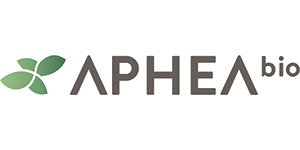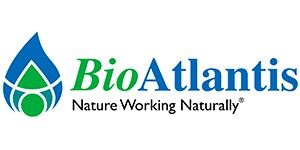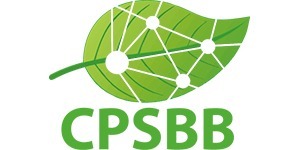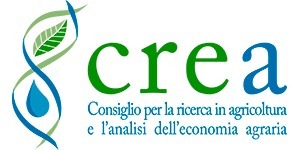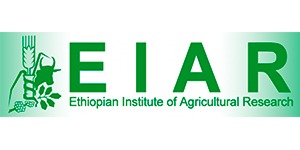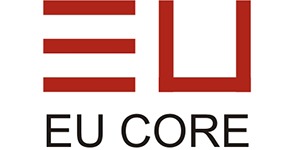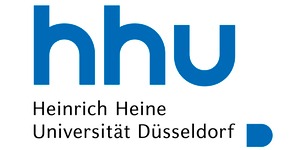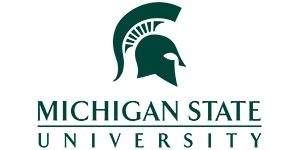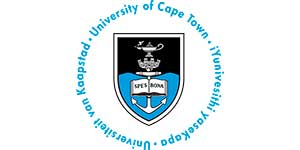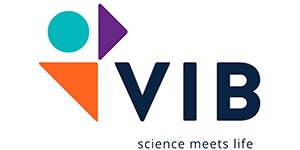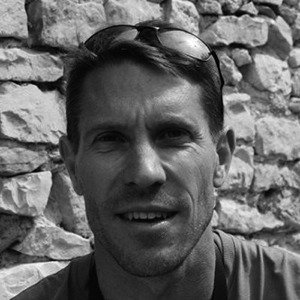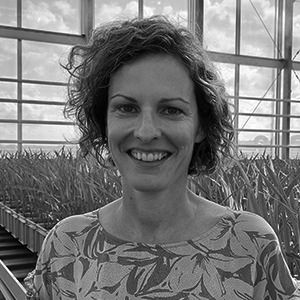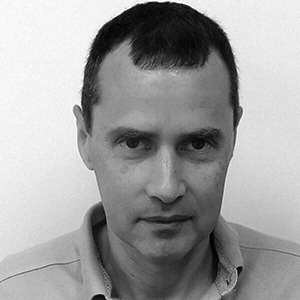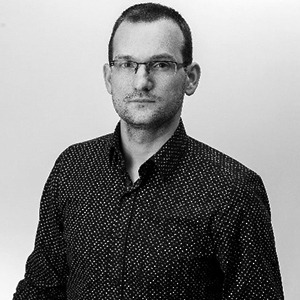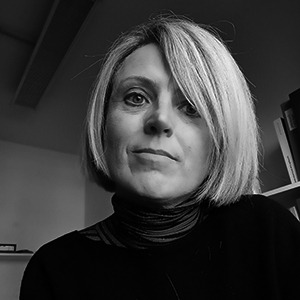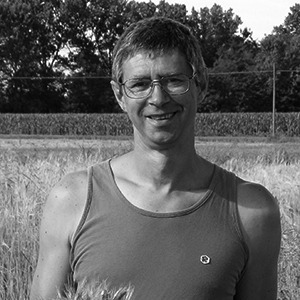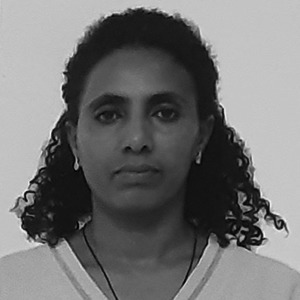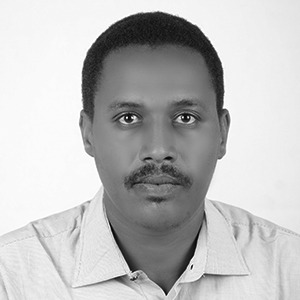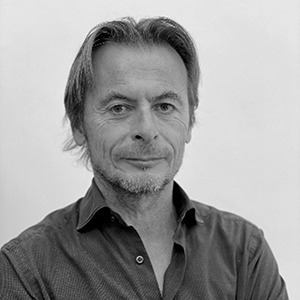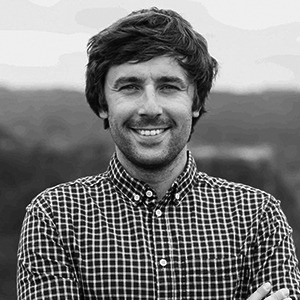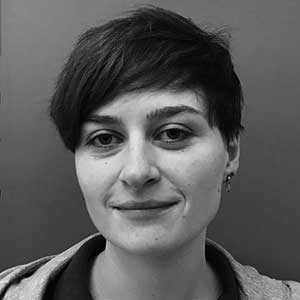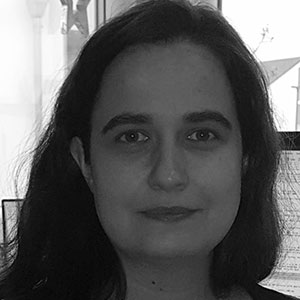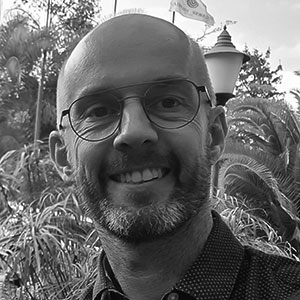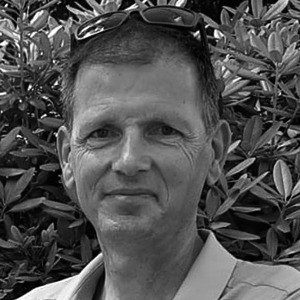Project Participants
List of partners.
APHEA Bio
Aphea.Bio is dedicated to food security and ensuring a safe and healthy food chain.
More information:
We believe that with a fresh and sincere spirit of innovation, result-driven science, and the courage to go off the beaten track, there is fertile ground to develop efficacious biological solutions to help complement or partially replace products in the major chemical indications.
We aim to provide novel, science-based solutions to build the agriculture of the future: sustainable, reliable, and profitable.
Role in the project:
Aphea.Bio will be involved in the drought screen testing of the candidate microorganisms in greenhouse and in field trials.
BIOATLANTIS LTD.
BioAtlantis Limited (Ireland) is a biotechnology company specializing in the production and purification of natural bioactive compounds with the aim of providing solutions to specific problems in crops, animals and humans.
More information:
The company’s involvement in Booster builds on its strong reputation as a disruptor in the European biotechnology sector and in the delivery of environmentally friendly and sustainable solutions to crop growers worldwide. The company was founded in 2004 and exports its products and technologies to over 30 countries worldwide.
Role in the project:
BioAtlantis will provide novel ‘molecular priming’ biostimulant technologies, designed and specifically tailored to enhance drought tolerance in maize and teff. The formulations will be produced and screened at the company’s in-house R&D and production facilities, prior to despatch to other partners for field trial evaluation. By project end, BioAtlantis will deliver effective biostimulant technologies to maize and teff crop growers, providing them with a means to protect their crops from drought stress. BioAtlantis will coordinate activities in WP4, whilst also playing a key role in WP3.
CPSBB
The Center of Plant Systems Biology and Biotechnology (CPSBB) is an autonomous research entity based in Plovdiv, Bulgaria. CPSBB is dedicated to conducting high-quality research in the field of plant systems biology and biotechnology.
More information:
CPSBB aims to uphold the highest standards of research quality and productivity. By utilizing advanced genetics, functional genomics, metabolomics, and bioinformatics technologies, CPSBB investigates complex gene regulatory networks, metabolic pathways, and plant development, stress physiology, and the production of valuable metabolites. In addition to our research endeavors, CPSBB is committed to developing innovative products that cater to the needs of both the Bulgarian and global agricultural sectors. This includes the creation of innovative diagnostic tools, technologies for plant breeding, resilient vegetable varieties, improved crop yields, and plant-derived products with pharmaceutical properties.
To achieve these goals, CPSBB has specialized departments dedicated to various aspects of plant biology. These departments includes bioinformatics and mathematical modeling, crop quantitative genetics, molecular stress physiology, plant cell biotechnology, plant development, plant metabolomics, and vegetable breeding. Each department plays a crucial role in advancing our understanding of plants and their applications in diverse fields.
At CPSBB, we are driven by a shared passion for scientific excellence and a commitment to driving progress in plant research and biotechnology. Through our multidisciplinary approach, collaborative spirit, and strong partnerships with academic institutions, research organizations, and industry stakeholders, we strive to make significant contributions to the field and promote sustainable agricultural practices.
Role in the project:
CPSBB participates in WP3, where CPSBB will investigate the effect of Sea Weed Extracts (SWEs; 5 SWEs for seed coating and 3 SWEs for leaf priming) provided by BioAtlantis on maize in control and drought-stressed conditions. Treatments will be applied on i) seeds before sowing, (ii) leaf before drought stress, and (iii) seeds and leaf. The drought stress will be applied at the juvenile stage and around the vegetative to flowering transition stage, which will be assessed in different maize accessions. Evaluation of the physiological and biochemical parameters will allow for the identification of the best-performing SWE candidates and treatments. Two maize SWE-based biostimulants will be selected from the best-performing candidates. For these analyses, a maximum of three maize genotypes will be employed. CPSBB will analyse the mode of action of two maize SWEs through transcriptome analysis of leaf samples collected at three different time points after priming. CPSBB will perform metabolomic studies for a selected number of maize and teff SWEs.
CREA
Consiglio per la ricerca in agricoltura e l’analisi dell’economia agraria (CREA) is the leading Italian research organization dedicated to the agri-food supply chains. It operates as a legal entity under public law, and are supervised by the Ministry of Agriculture, Food Sovereignty and Forests (Masaf).
More information:
CREA was established in 2015, from the merging of CRA (Council for Agricultural Research) and INEA (National Institute of Agricultural Economics), two country-wide institutions active since mid of last century. CREA possess several farms and experimental fields and employes over 2000 people, half of whom are researchers and technologists.
The CREA commitment is to deal with the great challenges of the twenty-first century related to food production sustainability, following the principles of the circular, bio-based economy through a multidisciplinary approach that includes innovation transfer.
The know-how ranges from genetics and physiology to mechanics and robotics; from innovative techniques for the management of sustainable productions, including practices to improve soil fertility and plant protection, to silviculture, under natural and cultivated ecosystems, and livestock farming; from agro-food industry processes to the nutritional properties of foods and dietary aspects. Consumer protection and education as well as waste reduction are also a top priority.
The scientific activity covers agricultural crops, livestock, fishery, forestry, agro-industry, food science – and socioeconomics.
The new CREA organization foresees 12 research centers (6 related to specific supply chains and 6 dedicated to horizontal topics):
- Agriculture and Environment
- Food and Nutrition
- Cereal and Industrial Crops
- Plant Protection and Certification
- Forestry and Wood
- Genomics and Bioinformatics
- Engineering and Agro-Food Processing
- Olive, Fruit, and Citrus Crops
- Vegetable and Ornamental Crops
- Agricultural Policies and Bioeconomy
- Viticulture and Enology
- Animal Production and Aquaculture
Role in the project:
CREA is the project coordinator and the coordinator of work package 6 for management and quality. It participates to BOOSTER with four different research centers: i) Cereal and Industrial Crops; Vincenzo Rossi – coordination, teff and E. nindensis MOA/mRNA-seq libraries, characterization of maize mutants; ii) Genomics and Bioinformatics, Primetta Faccioli – bioinformatics analysis and data management plan; iii) Animal Production and Aquaculture, Andrea Brandolini – maize field trials for test of biostimulants and production of hybrids; iv) Agricultural Policies and Bioeconomy, Mara Lai – Exploitation manager and Stakeholders Engagement.
EIAR
EIAR is a governmental research institute that conducts vast research activities in different research areas with the vision to see an improved livelihood of all Ethiopians engaged in agriculture, agro-pastoralism and pastoralism through market competitive agricultural technologies.
More information:
EIAR’s mission is to conduct research that provides market competitive agricultural technologies that will contribute to increased agricultural productivity and nutrition quality, sustainable food security, economic development, and conservation of the integrity of natural resources and the environment.
EIAR’s major objectives are (1) to generate, develop and adapt agricultural technologies that focus on the needs of the overall agricultural development and its beneficiaries; (2) to coordinate technically the research activities of Ethiopian Agricultural Research System; (3) build up a research capacity and establish a system that will make agricultural research efficient, effective and based on development needs; and (4) popularize agricultural research results.
Role in the project:
EIAR participates in: WP1 through the development of FI teff hybrids for the genome-wide identification of teff CREs and genes associated with drought tolerance, WP2 through validation/evaluation of the Re-sequenced teff lines for expression of variation and drought tolerance in field trials; WP3 in the Development and characterization of new microbial biostimulants and evaluation of SWE for improving teff drought tolerance; WP4 in the field trial of microbial biostimulants and SWEs for effectiveness in improving teff drought tolerance in Ethiopian drought-prone areas; and WP5 of Project DEC: to improve public understanding of biotechnology and bioeconomy.
EU CORE
EUropean COoperation in Research and Education (EU CORE) is a consulting firm that offers partner design, administrative management, reporting, evaluation and research services to universities, research centers, companies, public administrations, non-profit organizations wishing to participate in research and cooperation projects funded by the European Union or other national and international initiatives.
More information:
EU CORE is one of the leading companies in Italy in project design and project management of national, international and EU funded research and cooperation projects. Established in 2007, with offices in Turin and Rome, EU CORE offers a wide range of services customized for universities, research bodies, SMEs, large companies, public administrations as well as to non-profit organisations interested in applying for European, national or regional funding programmes. These services follow four main lines:
- Fundraising – provide targeted fundraising services based on a tailor-made evaluation.
- Project design – turn the “grass-root” project idea into a sustainable and coherently-planned project proposal.
- Project Management – support beneficiaries in the daily management of the project grants through overall, financial and ethics issues management. The support includes project monitoring, reporting, quality assurance and dissemination, exploitation and communication (DEC) activities.
- Training – provides fundamental instruments to manage international projects in the phases of project design, management and reporting through a wide offer of targeted training courses delivered by senior experts with extensive expertise in project design and management.
Role in the project:
Within BOOSTER, EUCORE is:
- Providing assistance to the Project Coordinator and to all the beneficiaries for all project management endeavours (WP6)
- Responsible for the Project Management Handbook and for the Data Management Plan (WP6)
- Setting up and chair the Ethics Advisory Group for providing advice about genetically modified plants (WP6 and WP7)
- Supporting IDConsortium in C&D activities and organization of the Final project conference (WP5)
IDConsortium
IDConsortium is a Spanish private company, proactive and skilled in integrated management, dissemination and exploitation of R&D and innovation (Research, Development and innovation) of all types of private companies, as well as regional, national and European organizations. It was funded in 2009.
More information:
Its performance is mainly based upon the listed strategic lines:
- Internationalisation of Research and Innovation in Spain, through the creation and dynamization of European Consortia with high visibility in Spain in order to develop Research and Innovation activities.
- Collaboration in research, development and innovation project designs and planning, starting at the preparation phases all the way to their execution.
- Management of financial lines that are unlike the traditional Financial Entity ones, for company investment projects and all other types of entities.
- The management of the dissemination and exploitation of results in R&D projects.
Role in the project:
IDConsortium is leading the work package 5 devoted to to improve public understanding of biotechnology and bioeconomy in the context of the EU strategies and implementation of the stakeholders’ involvement to achieve project outcomes and impacts.
KWS SAAT SE & CO KGAA
KWS is a large seed company that has a detailed sustainability ambition program to define of 1.5% annual yield gain for farmers through progress in plant breeding and digital farming.
More information:
- to minimize inputs required, by enabling >50% reduction of chemical crop protection for Europe through the investment of >30% p.a. of the research and development budget into reduction of inputs and by ensuring that >25% of KWS varieties are suitable for low input agriculture;
- to enhance crop diversity, through crop rotation options aimed at increasing the number of crops with dedicated breeding programs from 24 to 27 by 2030;
- to support sustainable diets, by ensuring that >40% of varieties are suitable for predominantly direct use in human nutrition;
- to improve operational footprints, by reducing greenhouse gas emissions by 50% until 2030 and net-zero by 2050 and by establishing score cards to provide transparency on ecological footprint of all seed production sites;
- to foster social engagement by investing a minimum of 1% EBIT p.a. into social projects.
Role in the project:
- A total of 50 maize F1 hybrids (40 public and 10 from KWS germplasm), including drought stress tolerant and more sensitive genotypes, will be analysed with the MoaSeq method.
- The validation of the CRE genetic variants and nearby genes will be performed using different strategies (loss of function alleles of key drought response genes, the top bQTLs edited by CRISPR, allele mining of desired CRE/gene haplotypes into a maize germplasm collection).
Phenotyping in the greenhouse for drought stress.
Key People engaged:

Daniela Scheuermann
Group Lead Molecular Resources Maize & Oilseed crops

Claude Urbany
Senior scientist Molecular Resources Maize & Oilseed crops

Wolfgang Koch
Group lead yield traits
MSU
Michigan State University (MSU) is a public research university located in East Lansing, Michigan, United States. It was founded in 1855 and is one of the oldest universities in the country. MSU is known for its strong academic programs, research contributions, and vibrant campus life.
More information:
The Department of Horticulture’s mission is to prepare our students for horticulture-related careers in science and business. This includes making new discoveries in the plant sciences; promoting the use of plants and food for improved human health and a safe environment; improving the characteristics, quality and availability of horticultural products; and strengthening the competitive position of the world’s horticultural industries. Faculty members possess a diverse array of expertise – both interdisciplinary (e.g., breeding, genomics, development, physiology, metabolism, molecular biology, and sustainable production), and commodity based (e.g., fruits/pomology, vegetables, viticulture, floriculture, nursery crops, postharvest, design and landscape ecology, and marketing) – which they utilize in their research, teaching and outreach programs, at both the national and international levels.
The VanBuren lab applies an integrative genomic, quantitative genetics, and evolutionary approach to understand the genetic basis of natural adaptations in plants for targeted crop improvement. This work centers on the evolution of CAM photosynthesis and extreme desiccation tolerance in resurrection plants. We also use more conventional marker assisted breeding coupled with systems biology approaches to improve drought tolerance of underutilized crop species. Ongoing work centers around establishing genetic and genomic resources for the orphan grain crops tef and finger millet to improving yield, stress tolerance, and forage potential.
Role in the project:
The USA associated partner, MSU, will provide information on the teff genome sequencing program, access to USDA germplasm, and will bring in expertise, tools and networks required for comparative genomics, rendering him highly important to the success of BOOSTER.
Key People engaged:

QUANTIS
Quantis is a leading sustainability and Life Cycle Assessment (LCA) Swiss consultancy, specialised in supporting organisations to measure, understand, manage and communicate on the sustainability performance of their products, services and operations.
More information:
With LCA as its backbone, Quantis purpose is to guide organisations to define, shape and implement smart solutions from an environmental sustainability perspective, by delivering robust metrics, resilient strategies, useful tools and credible communications. Amongst Quantis sustainability consultants, several are internationally renowned experts in LCA, shaping the future of sustainability, backed by a strong scientific background.
Quantis has a uniquely broad and detailed set of expertise in LCA, including the development of multiple Life Cycle Impact Assessment methods and models (IMPACT 2002+, USEtox™ model, UNEP-SETAC toxicity model, the LCIA-ILCD European Method, IMPACT World+) with focused applications in innovative technologies. Over the past 12 years, Quantis has been involved in 13 FP7 projects and close to 30 H2020 projects, a number of which are related to bio-based specialty materials or innovative crop cultivation systems.
Role in the project:
Quantis is involved in WP5 (Jonathan Ouziel & Kenta Perret) and will provide environmental assessment of the different genome edited products developed during the BOOSTER project. The environmental performance of the developed products shall be assessed by means of Life Cycle Assessment (LCA), with a focus on greenhouse gas emissions (carbon footprint), non-renewable primary energy use (energy footprint) and water footprint, but also other relevant indicators for crop systems such as ecosystem quality or human health.
This activity will guide the selection of the relevant phenotypes of the BOOSTER project towards more resilient and sustainable agri-food systems.
UBERN
The University of Bern (UBERN) sees itself as a comprehensive university in the Tradition of European universities.
Its faculties comprise those of theology, humanities, human science, law, social science, economics and business, medicine, veterinary medicine and natural science. Guided by scientific interests and social needs, the University of Bern establishes disciplinary and interdisciplinary foci and so develops its own profile. It uses the autonomy it has been granted and its creative freedom to achieve this.
More information:
The University of Bern (UBERN) is among cantonal universities in Switzerland with 20 thousand students with the mision of setting out general standards that the university and its members aim to achieve and adhere to in the long term with regard to people, research and teaching as well as public relations and the environment. While the in the Institute of Plant Sciences (IPS) under Biology Depratment is hosting the BOOSTER Project, the Crop Breeding and Genomics Group is responsable for the day to day activities of the BOOSTER project.
Role in the project:
UBERN participates in all work packages (WPs) except for WP4. In WP1, UBERN grows teff plants under different water regimes to be used in the MoA experiment. In WP2, UBERN investigates physiological and morphological parametrs of teff genotypes grown on contrasting wáter regimes.
In addition to coordinating WP3, UBERN is involved in several activities of WP3 including the study of microbial and seaweed biostimulants on the performance of teff plants exposed to drought condition. UBERN also participates in the mode of action studies under WP3. Similar to other partners, UBERN participates in WP5 (Project DEC) and WP6 (Project management).
UCT
University of Cape Town (UCT) is a community of exceptionally talented students, teachers and researchers – and a wide range of professional, administrative support and service staff – all of whom are committed to help change this world for the better.
We encourage one another to work hard, not only to earn degrees or public recognition, but also to be leaders in this increasingly changing world.
More information:
Professor Jill M. Farrant holds a South African Department of Science and Innovation (DSI) and National Research Foundation (NRF) Research Chair, situated in the Department of Molecular and Cell Biology at the University of Cape Town. She is an acknowledged world leader in the field of plant desiccation tolerance, holding a rarely given A rated status by the NRF. As exemplified by the title of her Resarch Chair, Systems biology studies on plant desiccation tolerance for food security, Farrant uses a multidisciplinary Systems approach to investigate the mechanisms of desiccation tolerance and regulation thereof, in a variety of deisccation tolerant systems, with the ultimate aim of producing more drought tolerant crops for food security in a hotter drier future. She has received 11 awards for her work, and it has been the subject of several, some award winning, documentaries.
Role in the project:
Farrant will participate in WPs 2, 3 and 5, where she will:
- Provide mother soil from populations of Eragrostis nindensis and Eragrostis curvula for the cultivation of Teff and testing for drought tolerance by PIs at the Ethiopian Institute of Agricultural Research. She will sequence the endophytes extracted from roots of Teff varieties which best survived drought conditions. (WP3)
- Subject plants of nindensis to dehydration and recovery, collecting appropriate leaf material during such a time course for transport to CREA for MOA/mRNA-seq analysis (WP2)
Ensure rollout of objectives in WP5 in Africa.
UDUS
Founded in 1965, the University of Düsseldorf (or Heinrich Heine University) is a modern Campus university consisting of five faculties (Medical, Mathematics and Natural Science, Law, Arts and Humanities,Business and Economics) including a well-renowned University Hospital in the medical faculty. The Campus character is specifically designed to foster interdisciplinary research with a strong focus on dialogue with the public (Citizens’ University) and support for Entrepreneurship through the Center for Entrepreneurship Düsseldorf (CEDUS).
More information:
Located in a triangle of with three other large Universities cities (Cologne and Aachen) as well as two public research institutes (Jülich and Cologne) UDUS is involved in interaction between these research bodies as exemplified in the Cluster of excellence for plant science (CEPLAS). CEPLAS aims at ensuring sustainable food supply in the context of world population and climate change through fundamental research on complex plant traits of agronomic relevance. The Institute for Molecular Physiology (IMP) at UDUS is part of this excellence cluster. The IMP, with groups in Düsseldorf, Nagoya (Japan) and at the Max Planck Institute for Plant Breeding Research in Cologne (the group participating in the Booster Project) connects basic research with applicability. Different sections of the IMP focus on crop yield improvement in maize and rice, often in close collaboration with farmers or local research facilities e.g. in Africa and Asia.
Role in the project:
UDUS coordinates WP1 (Thomas Hartwig) and is involved in WP2; also UDUS founded the FIND-CIS consortium focused on breakthrough technology development for discovery of functional diversity.
VIB VZW
VIB is an entrepreneurial non-profit research institute, with a clear focus on ground-breaking strategic basic research in life sciences and operates in close partnership with the five universities in Flanders – Ghent University, KU Leuven, University of Antwerp, Vrije Universiteit Brussel and Hasselt University.
More information:
VIB’s plant biotechnology research is focused on key areas such as plant metabolism, growth and development, the interaction of plants with the environment. Bioinformatics and integrative biology provide a framework for dissecting dynamic interactions between molecules, ultimately enabling us to understand complex processes such as plant growth. Translating research from model plants to crops ensures innovation moves from the lab to the field.
In doing so, breakthrough technologies indisputably advance research on stress tolerance and crop productivity, including wood formation, the production of biomaterials/bioenergy and plant-derived pharmaceuticals. Together with precision farming, VIB strives for climate-resilient solutions for agriculture.
VIB hosts IPBO that promotes scientific development and technology exchange, develops education and capacity building programs and supports advocacy and awareness creation around plant biotechnology between Belgium and Africa.
Role in the project:
VIB coordinates WP2 (Hilde Nelissen), is involved in WP3 (Sofie Goormachtig) and WP5 (Marc Heijde). In addition, Hilde Nelissen and René Custers are part of the ethics committee.

